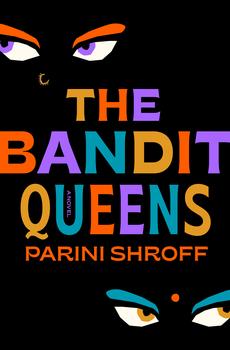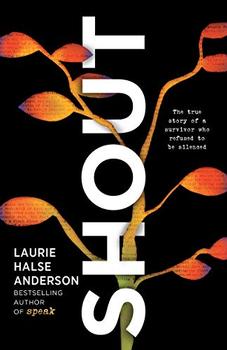Summary | Excerpt | Reading Guide | Reviews | Beyond the book | Read-Alikes | Genres & Themes | Author Bio

Grace Salter, the daughter of a preacher with progressive politics, has recently moved to Prescott, Oregon. Here she meets Rosina Suarez, a Mexican-American lesbian with a troubled home life and dreams of starting a rock band. Rosina's friend, Erin DeLillo, is a marine biology buff with Asperger's who wishes she was an android. Binding the three together is Lucy Moynihan, a teen whose family was forced to leave town after local authorities refused to prosecute the high school jocks who raped her. When Grace learns of Lucy's plight, she enlists Rosina and Erin to seek justice at their school — they name their trio, The Nowhere Girls.
This is Amy Reed's sixth YA novel; the story is an incisive look at rape culture and female empowerment. The chapters alternate between Grace, Rosina, and Erin, the rest of the female student body, and the misogynist blog entries of a Men's Rights Advocate who may or may not be one of Lucy's rapists.
The story picks up steam when The Nowhere Girls enlist other members by sending out an email to all the girls at Prescott High School. Only a few show up at their first secret meeting, but when one of the girls takes action and puts up posters calling out the sexist culture, The Nowhere Girls gain more interest and scrutiny. The boys at the school take notice after the girls launch a sex strike, refusing to sleep with them until they change their behavior. Their actions force the school to come to grips with the toxic masculinity of rape culture and the way the school's principal is more interested in keeping order than protecting her young female students.
The novel's most affecting moments occur when the girls' home lives collide with their activism as they carve out identities from familial expectations. Both Rosina and Erin struggle to connect with their mothers, each of whom pressures her daughter to be good and normal. Grace also feels self-imposed stress to live up to her parents' expectations, but the young women refuse to be good or normal, which, according to society, means acquiescing and remaining silent. For Rosina and Erin, factors of race, sexuality, and disability make them easy targets for abuse. Their personal fears add layers of pressure as they decide whether to fight back or stay silent. But strength comes in unity, and each girl overcomes her fears and empowers herself in the fight for justice.
While the novel focuses largely on the three main characters, it offers space for the voices of other female students. In chapters titled "US," we see a diversity of ideas about tactics, feminism, sex, and men in general. Topics like intersectionality and sex positivity are also broached, though, at times the novel falls to the White Feminism tropes it attempts to evade. Aside from Rosina, all the girls who resist and all the rape survivors are white and cisgendered. While the novel purports to speak for all girls— "[The cheering] is all the girls, all their voices, calling out as loud as they can"—only a transgender girl named Adele and an unnamed Black girl are given two separate paragraphs to make room for diversity. As a Black woman and aunt of a teenage Black girl, I found this exclusion to be the most frustrating of all.
The lack of diversity is a major flaw, and yet, given the few works of fiction for adults and young adults that tackle rape culture, The Nowhere Girls is still compelling, with richly drawn characters and important themes of empowerment and personal growth. Like the girls themselves, it hopes to be provocative, to spark outrage, and start conversations. On that level, it succeeds.
![]() This review was originally published in The BookBrowse Review in November 2017, and has been updated for the
September 2019 edition.
Click here to go to this issue.
This review was originally published in The BookBrowse Review in November 2017, and has been updated for the
September 2019 edition.
Click here to go to this issue.

If you liked The Nowhere Girls, try these:

by Parini Shroff
Published 2024
A young Indian woman finds the false rumors that she killed her husband surprisingly useful—until other women in the village start asking for her help getting rid of their own husbands—in this razor-sharp debut.

by Laurie Halse Anderson
Published 2020
A searing poetic memoir and call to action from the bestselling and award-winning author of Speak, Laurie Halse Anderson!
He who opens a door, closes a prison
Click Here to find out who said this, as well as discovering other famous literary quotes!
Your guide toexceptional books
BookBrowse seeks out and recommends the best in contemporary fiction and nonfiction—books that not only engage and entertain but also deepen our understanding of ourselves and the world around us.